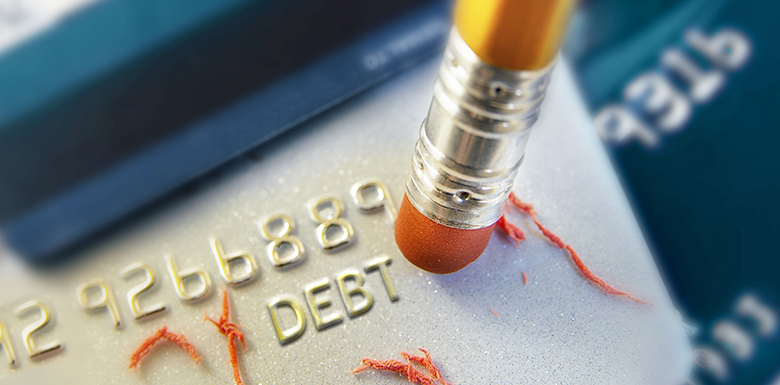How Bankruptcy Can Wipe Your Slate Clean
23 May 2021, by in Bankruptcy
Written by Timothy Czekaj
Overwhelming debt can ruin your life. You may have debt collectors calling at all hours. You may not be able to sleep at night because the anxiety has become too much to bear. Fortunately, you have options to responsibly take care of your finances and move on with your life.
One of the most well-known debt options is a bankruptcy filing. But deciding if bankruptcy is for you or even choosing the right type for your situation can be challenging.
Is Bankruptcy the Right Choice for You?
Many people associate bankruptcy with a failure. Many individuals and businesses find that bankruptcy allows them a fresh start. Nobody ever gets in over their head intentionally. Maybe you didn’t understand the extent of your financial obligations. Or perhaps you made a simple mistake that ended up costing you.
In any case, bankruptcy can be an excellent tool for people to get back on their feet by:
- Erasing debt
- Ending collection calls, wage garnishments, and lawsuits
- Allowing you to rebuild your credit and gain a better credit score
Different types of bankruptcy may be a good fit for you, depending on your case. Continue reading to learn more about the different types of bankruptcy and how they work.
Chapter 11 Bankruptcy: Allows Struggling Businesses to Stay Open
Chapter 11 bankruptcy could be a good option for you if you are a business owner. This type of bankruptcy lets you keep your business open even with financial struggles. Once you file a Chapter 11 bankruptcy petition, there will be an automatic stop to collections. This will prevent creditors from continuing to try to collect the debt from you.
First, you and a bankruptcy lawyer list all your creditors and what you owe them. Then, you will create a repayment plan. This includes how much you will pay each creditor, the amount, and how long you need to repay them fully. Creditors can object to your plan, so be prepared for some negotiation.
You must legally promise the terms of the repayment plan, including making all payments on time. Fulfilling this commitment will help you rebuild your credit and your reputation.
Chapter 7 Bankruptcy: Selling Assets to Repay Creditors
In a Chapter 7 bankruptcy, some or all of your assets are sold to repay creditors. This may not be as grim as it sounds: a bankruptcy lawyer can help you recertify a debt to retain the asset so long as you continue making payments.
Not everyone qualifies for this type of bankruptcy (you must be under the federal poverty limit). If you do qualify, a Chapter 7 bankruptcy wipes the slate clean for many kinds of debt, including:
- Medical bills
- Credit card debt
- Past-due rent
- Past-due utility bills
- Business debts
- Personal loans
- Some civil judgments
- Certain older income tax debts
While there are some debts that cannot be erased – child support, student loans – you will have more money to pay these bills once another debt is removed.
Chapter 13 Bankruptcy: Most Common Form of Bankruptcy
Chapter 13 bankruptcy is the most common type of bankruptcy. This is because most people do not qualify for Chapter 7 bankruptcy. Like Chapter 11 bankruptcy, you must formulate a repayment plan for your list of creditors and debts. However, filing for Chapter 13 bankruptcy ends the torture of collection calls and allows you to take control of your finances.
Once you have a reorganization plan in place, you will make those payments as scheduled. It is important that you do not default on these payments, or your bankruptcy petition could be dismissed. This would mean you would still need to repay your creditors in full or refile for bankruptcy.
After the terms of your bankruptcy petition have been met, your slate will be clean. Any remaining debts will be cleared. You will no longer have to worry about creditors and worrisome debts. This is true whether you filed Chapter 7, Chapter 11, or Chapter 13 bankruptcy.
Contact a New Bloomfield, PA Bankruptcy Attorney
Declaring bankruptcy does not mean that you are a failure or that you will never have good credit. In fact, credit scores for individuals who filed for bankruptcy improved, according to a study from the Federal Reserve Bank of Philadelphia.
A bankruptcy lawyer at Czekaj Law, LLC can help you figure out which bankruptcy petition is right for you. We represent you to creditors, help you create a repayment plan, if necessary, and protect your legal rights.
Call 717-275-9770 today for a free, no-risk consultation, or use our quick contact form. We want to help you wipe the slate clean with a stress-free financial plan.